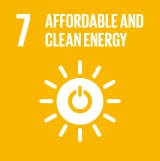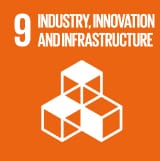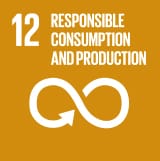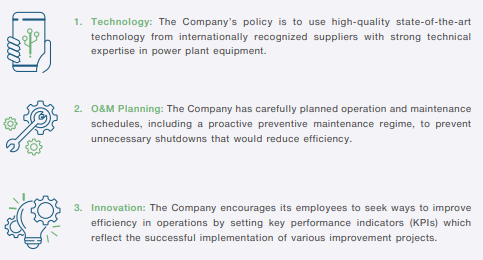ABOUT US




Eco-efficiency can be defined simply as creating greater business value with fewer negative environmental impacts.
For GULF, this concept forms the foundation of its operational objectives, as maintaining high levels of efficiency allows for greater
productive output while using fewer resources and thus lowering operating costs. Since 2017, the Company has adopted an Environmental
and Social Management System (ESMS)* which takes into consideration the interrelation between humans and the environment. Thus,
the Company’s environmental management measures are developed with input from local communities and other relevant stakeholders to seek
outcomes that create benefits in all dimensions of sustainability.
Almost all of the Company’s energy consumption can be attributed to the consumption of natural gas which is used to generate electricity in its power projects. Thus, while the Company encourages energy conservation in all areas of operations, its main strategies for reducing its energy consumption and energy intensity are aimed at attaining the highest possible levels of efficiency. The Company achieves this in three ways:

In 2020, the Company’s total energy consumption increased as a result of new projects achieving commercial
operation in 2019 and 2020. However, as a result of its energy management strategies, the Company’s energy intensity
was 7.40 (GJ/MWh), a reduction of 5.25% from the previous year.
*based on the ADB Safeguard Policy Framework
Furthermore, the Company has made it a major part of its strategy to utilize state-of-the-art technology in all its projects to achieve the highest levels of efficiency and remain relevant in the long term by targeting to improve at least 0.5% of efficiency every year for maintaining high quality standards.
